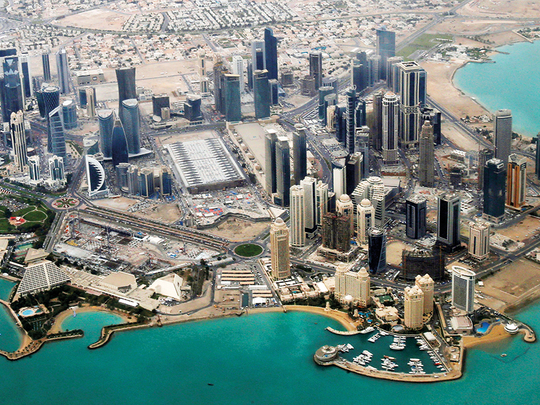
Abu Dhabi: Qatari leaders are fully responsible for the decisive measures taken by the three Gulf states against Doha, analysts said yesterday.
“The leadership in Qatar is fully responsible for the decisive actions taken by the three Gulf capitals — Riyadh, Abu Dhabi and Manama — against Doha. Qatar’s leaders are completely responsible in front of it people and in front of the Gulf peoples for the toughest measures taken by the GCC leaders,” Dr Abdul Khaleq Abdullah, a leading Emirati political analyst said.
Four Arab states have cut diplomatic ties with Qatar, accusing it of destabilising the region.
Saudi Arabia, the UAE, Bahrain and Egypt all announced they would withdraw their diplomatic staff from Qatar, while Saudi Arabia also said Qatari troops would be pulled from the ongoing war in Yemen.
The UAE has given Qatar’s diplomatic mission in Abu Dhabi 48 hours to leave the country after what it said where “Doha’s several policies which destabilizes the security and stability of the region and manipulates commitments”.
The UAE informed Qatari citizens they had 14 days to leave the country. Qatari citizens have also been banned from passing through the UAE. Emiratis have been advised not to visit, or even transit through Qatar.
All four states said they planned to cut air and sea traffic, while Saudi Arabia said it also would shut its land border with Qatar.
Dr Abdullah added the ball is now in Qatar’s court and that Qatari leaders should deal with the problem out of responsibility towards their people and peoples of other Gulf Cooperation Council (GCC) countries.
“These sanctions target only the Qatari leadership and are meant to put more pressure on it to bring Qatar back to the Gulf ranks and to stop embracing terrorist organisations,” Dr Abdullah said.
“It’s a sad day for Qatar and a sad day for every citizen of the Gulf countries, but perhaps it’s actually not such a bad thing because Doha should honour its commitments as now is a critical moment for action to live up to the Riyadh agreement and address all pending issues once and for all,” Dr Abdullah said.
Dr Abdullah warned Doha against allying with opportunists, especially Tehran, who like to fish in troubled waters.
“For every step taken towards deepening relations with Iran, the more Qatar is driven away from Saudi Arabia and the GCC countries, but to an exponentially greater degree,” Dr Abdullah said.
Dr Ebtisam Al Ketbi, Chairwoman of the Emirates Policy Centre in Abu Dhabi, said the situation between Qatar and the GCC states has exacerbated to this point because of the Qatari authorities’ failure to commit themselves to the Riyadh Agreement .
“For three years, Doha has maintained support, funding and hosting of terrorist groups, primarily the Muslim Brotherhood, and promoted their ideologies across its direct and indirect media,” Dr Al Ketbi said.
Dr Al Ketbi added that Qatar also violated the statement issued at the US-Islamic Summit in Riyadh concerning combating terrorism in the region and considering Iran a state sponsor of terrorism.
Asked whether Doha will continue to deviate and seek support of external parties, Dr Al Ketbi said: “Iran cannot provide protection to Qatar, nor can Turkey sacrifice its relations with Saudi Arabia for Qatar. This will never happen, so I wish that Qatar recognises that the interests of Qatar and its people lie in aligning with the Gulf ranks and siding with its peoples.”
Dr Yousuf Al Hassan, a leading Emirati political analyst, expressed hope that the rift between Qatar and the Gulf countries will not deepen further.
“I hope Doha will soon return to reason and settle disputes in a way that preserve the GCC and Arab countries. Regional powers should not be allowed to meddle in to deepen the rift dramatically and threaten the Arab national security,” Dr Al Hassan said.
While regretting Doha’s policies that sow seeds of discord among the Gulf countries, Hussain Abdul Rahman, a Kuwaiti political analyst, said the Gulf dispute should be contained and GCC members should sit to the negotiating table to minimise loss.
“Now is a critical moment for an action to stave off a disaster. The situation has hit an impasse that leaves losers all round,” Abdul Rahman said.
Abdul Rahman said he trusts the Kuwati mediation will succeed in containing the rift and prevent it from deepening further. “We GCC nations and peoples would like unity in these troubled times that afflict the region,” he said.
“It’s not in the interests of anyone for this dispute to escalate further and for the good of all GCC countries, the crisis should be defused. My country Kuwait has a good record of intermediating in disputes — as it had done three years ago, when Qatar last broken from the position of GCC unity,” Abdul Rahman said.











